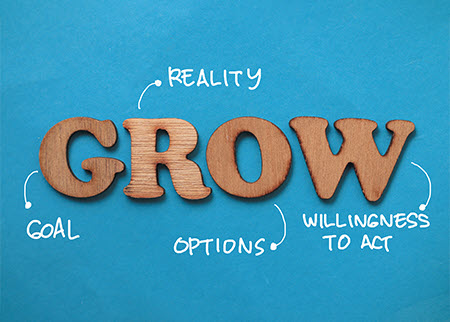“We cannot solve our problems with the same thinking we used when we created them.”
–Albert Einstein
 Getting through another day…
Getting through another day…
Cope, dispute, distract, medicate.
“Let me just get through this day.”
Everything is an effort, and you don’t feel like yourself anymore. The demands don’t stop – work, kids, deadlines, and dropping the cleats off for my kid.
You’re not just dealing with others’ expectations but your expectations.
“I’m smarter than this. I am better than this.”
Unrelenting and repetitive at the same time.
Working so hard, but the pain is still there. In fact, for someone “successful,” you would have thought that your pain would have gone away by now.
But it hasn’t, and it is getting worse.
 Before you ever looked at this page….
Before you ever looked at this page….
You’ve likely attempted many reasonable things to fix your problem:
Talking to your friends (and sometimes not talking to your friends)…
Taking a vacation…
Having that nightcap…
Going to church…
Going to therapy…
Starting an exercise routine…
Reading self-help books…
These can all be good things, but did they fix the problem? The pain and struggle are still here – running harder so you can catch up.
However, this treadmill does not stop, and you cannot keep up. It is hard to see the path forward with all the things to do in front of you.
 A Different Path
A Different Path
Maybe you’ve done years of therapy, or perhaps this is the first time you’ve sought to work with someone… either way, this is not your first rodeo attempting to fix this pain.
Acceptance and Commitment Therapy (ACT) offers you a new paradigm.
For starters, ACT doesn’t see pain or struggle as a sign that you’re “broken.” The struggle is part of normal human life. However, you have picked up a lot of “dirty” pain along the way. What is “dirty pain” – all the ways you have attempted to fix, deny, escape, and those efforts also have a cost.
While we all experience suffering, we also have the opportunity to live a “bigger,” more vibrant life. Let me describe a different path relating to pain that ACT offers.
We’ll use three tools with ACT…
The tools work a bit like pushing on different parts of a cork, working it to the point that it eventually pops!
Mindfulness
Mindfulness is the practice of present-moment awareness. When you practice mindfulness, you’re attentive to your present experience with kindness and without judgment. This form of mindfulness is a Western psychological approach to the practice. If you’re interested, I also offer a Christian mindfulness practice called Centering Prayer.
Mindfulness gives us a bigger perspective on our thoughts, how we label ourselves, and our stories. We all have “word machines” that give us an endless stream of thoughts, feeling, memories, etc. Together, you will learn skills on how to unhook from these stories and learn to hold what your “word machine” offers you with more flexibility. We’ll extensively utilize mindfulness and willingness moves to help limber your brain to be more flexible.
My experience of mindfulness has enabled me to experience a wider array of emotions more profoundly. It’s also given me the psychological resilience to take more risks and live a “bigger life” – a life more aligned with my values and dreams.
 Willingness
Willingness
The willingness to approach (instead of avoiding) difficult or unpleasant feelings…
Willingness ties into one of psychological literature’s core tools, exposure.
Exposure therapy is the practice of gradually increasing exposure to uncomfortable situations relevant to therapy. Interestingly, it does not mean that fear (or whatever emotion drives the avoidance) is extinguished but that the individual has become more resilient. Through your work, you will be able to approach and engage in situations that you avoided before. This may be speaking assertively with your boss at work or setting and pursuing a stretch goal.
The willingness branch in ACT also offers the skill of learning to create distance from thoughts, feeling, memories, etc. Together, you will learn the skill of creating distance from your thoughts, which makes approaching much more palatable. Creating distance is not done in service of feeling better (which it often will do, but sometimes won’t), but in favor of helping you have more space with the difficult thought so you might more fully and effectively engage with life here and now.
One of the core thoughts/beliefs that many individuals have is the “not good enough” story. In other psychological approaches, we might examine how “rational” that thought is, and you might expend a lot of effort toward making your mind more rational (or disputing the thought, etc.). And this may work for a while.
However, invariably (like holding a ball underwater), the old thought of “not good enough” will come back up. And this is normal. ACT would suggest a strategy like the following. “Yes, that is my old ‘not good enough’ story. Thanks, mind. We’re working on this report now, so how about we fully engage in writing for the next ten minutes.”
The purpose here is not to debate or beat this “negative thought” into the ground and walk away triumphantly. Or feel better. Our goal here is to give us space with the thought to do the next right thing (and because you value gainful employment to care for your family, that thing happens to be writing a report). The fact that negative thoughts are intractable and keep coming back is a very normal part of the human mind. This is where relapse with CBT is a fairly common concern, and ACT offers an attractive alternative to create flexibility to do the essential things you have been avoiding. Speaking of important things…
 Values
Values
Values are freely chosen life directions. Through our work together, you’ll get a clearer picture of what you want and how to get there.
We’ll explore who you are and what is most important to you.
And this is more than just a theoretical exercise! You’ll learn how to put those values to work in your life.
One of the tools at our disposal is a noticing exercise. Together, we will observe and write down what your “toward moves” and “away moves” are in your life. We’ll also explore the difference between your mental experience and your experience in the five senses.
Through this process of sorting and reflecting, you will realize patterns of thought and feeling related to ineffective behaviors. Additionally, you will also clarify who and what is most important and what actions would move you toward a more values-based life. The process of noticing toward and away moves helps clarify and live out your values realistically and practically.
This exercise combines all aspects of mindfulness, willingness, and boots-on-the-ground values work.
 You’re ready to move into a bigger life!
You’re ready to move into a bigger life!
Let’s move the conversation in a new direction. Let’s talk less about your “symptoms” and how to reduce them…
And let’s talk more about how you can flourish in this life!
I look forward to being your partner in this journey!
Please give us a call today: (832) 831-0178.

